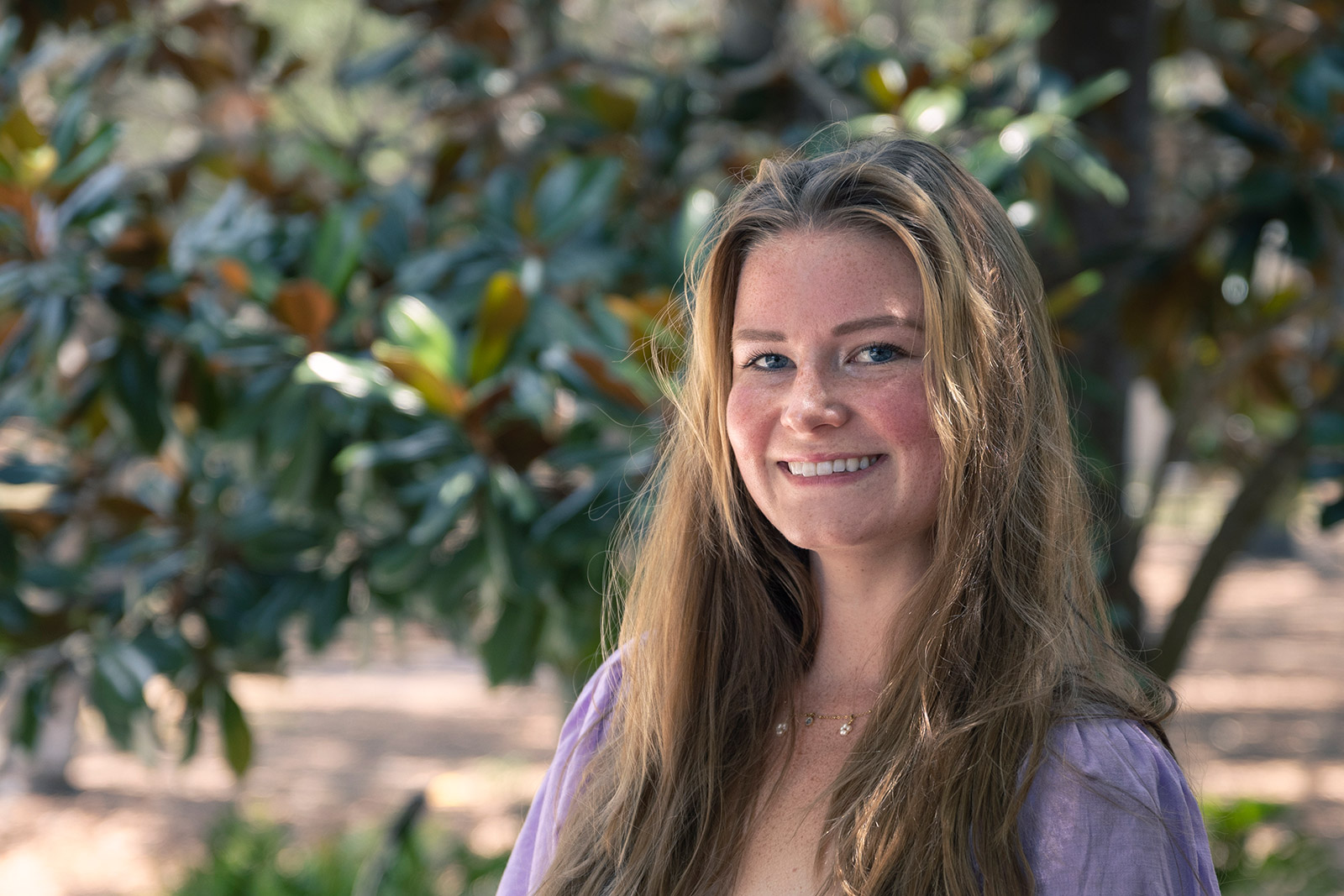As far back as she can remember, Lilly Anderson wanted to care for animals. She rescued two of the five cats her family homed, and every year on her birthday, she asked to go to the same place—the local zoo.
“I just always felt a really powerful drive to do the best I could for animals,” explains Lilly, a junior animal studies student at Eckerd College. “I want to be an ambassador for animals who were neglected or orphaned or part of an illegal pet trade.
“I think wildlife rehab is a very important field to be in as our world and our climate change and species start to go extinct.”
She’ll be able to immerse herself in that field starting in late June. Thanks to a $3,000 award from the Gilman International Scholarship Program, Lilly will spend a month this summer living and working at the Chipangali Wildlife Orphanage in Bulawayo, Zimbabwe. The orphanage is a nonprofit organization dedicated to the rescue and care of orphaned, injured, abandoned, abused or confiscated wild animals in southern Africa—including lions, leopards, hyenas, antelopes and birds of prey.
That, Lilly says, is just what she was looking for. “The wildlife rehab aspect stuck out to me,” she explains, “and I was looking for a more diverse wildlife. The orphanage is also family-owned; it takes in orphaned wildlife, releases animals that are rehabilitated back into the wild, and it has a nursery.
“This is a chance for me to get my feet wet in a lot of different areas.”
Lilly’s journey to Eckerd was unconventional. “I took a different path,” she explains. Raised in Cleveland, Ohio, she graduated from high school in 2016 and went to work for several years, at times squeezing in four jobs at once. During that time, she attended a community college and received her Associate in Arts degree. She transferred to Eckerd last September, and when she’s not at the College, she works as a crew member at Trader Joe’s in St. Petersburg.
The Benjamin A. Gilman International Scholarship, a United States Cultural Exchange Program, is named after the late congressman Benjamin Gilman, who served in the House of Representatives from 1973 to 2003 and was active in foreign affairs issues. The program is administered by the United States Department of State and supported by the Institute of International Education.
According to the Gilman Program’s website, the Scholarship is intended for U.S. undergraduates from diverse backgrounds and students going to nontraditional study abroad destinations. Established under the International Academic Opportunity Act of 2000, Gilman Scholarships provide grants for students to pursue overseas study for college credit. To be eligible, applicants must be receiving a Federal Pell Grant during the time of application.
“Study abroad is a special experience for every student who participates,” Gilman said not long after the Scholarship was established. “Living and learning in a vastly different environment of another nation not only exposes our students to alternate views … it also provides our students with the opportunity to return home with a deeper understanding of their place in the world, encouraging them to be a contributor, rather than a spectator in the international community.”
Earlier this year, three Eckerd College students earned Gilman Scholarships and traveled abroad. Ivy Sanborn, a senior animal studies student from Bar Harbor, Maine, traveled to Belize; Breeya Mathis, a senior marine science student from Memphis, Tennessee, traveled to Morocco; and Taylor Queen, a sophomore marine science student from Athens, Tennessee, traveled to the Bahamas. In all, 25 Eckerd students have benefited from Gilman Scholarships since the program began.
“Lilly is very passionate about wanting to work in and be involved in this field,” says her mentor, Erin Frick, Ph.D., assistant professor of animal studies at Eckerd College. “And building on her experiences in and out of the classroom is a great opportunity for her to immerse herself in this work.
“We’re very fortunate that we have a great variety of wildlife near our campus,” Fricks adds, “but this is a way to broaden that to whole different species groups, and to learn how other countries and other cultures perceive animals. I’m very excited for Lilly.”













